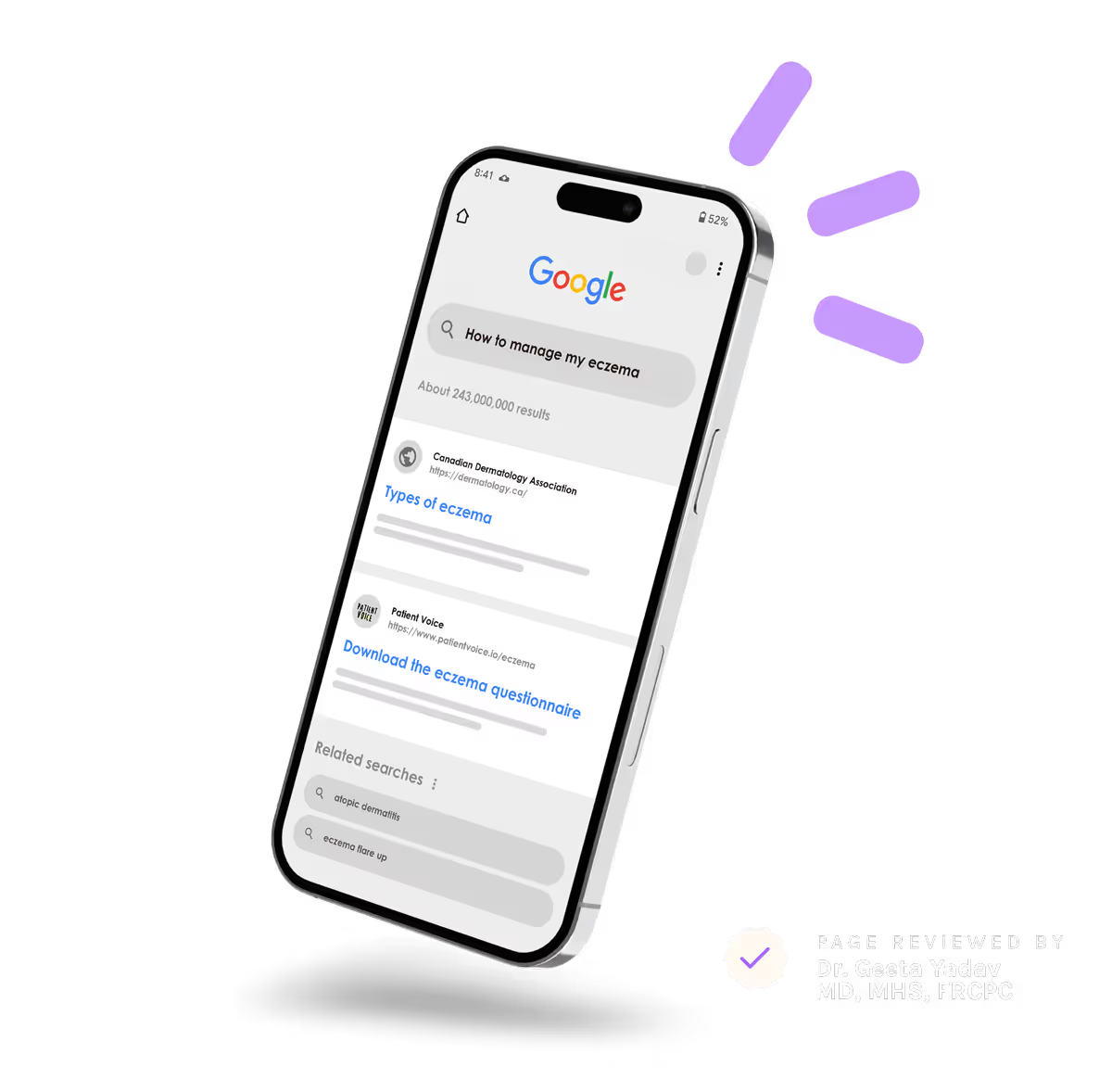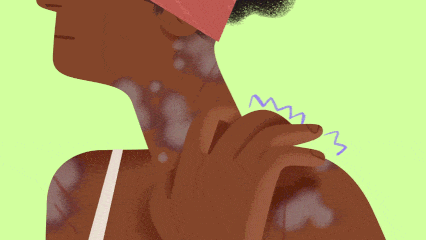Become an empowered eczema patient
Download Questionnaire





This hereditary form of eczema is estimated to affect up to 17% of Canadians at some point in their lifetime.

Signs of eczema can include:
The physical and emotional burden associated with eczema can have a significant impact on your quality of life and can even lead to anxiety and depression. Dealing with eczema can cause individuals to feel alone and can have a negative impact on everything from relationships and social activities to one’s ability to work.
Is eczema negatively affecting your life? Download our questionnaire and use it at your next doctor’s appointment to help guide your conversation. Working with your doctor will help you to identify and begin a treatment plan to better manage your condition.